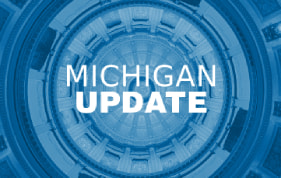This week we reviewed two active Medicaid managed care procurements – in the District of Columbia and Massachusetts – and a Medicaid managed care request for information issued by Texas. On December 22, 2016, the District of Columbia issued a request for proposals (RFP) to rebid Medicaid managed care organization (MCO) contracts for the DC Healthy Families and Alliance programs. One day prior, on December 21, 2016, Massachusetts issued a request for responses (RFR) from MCOs interested in participating in the MassHealth managed care program, with a focus on preparing for Medicaid ACO implementation, as well as the planned carve-in of managed long-term services and supports (MLTSS). Finally, also on December 22, 2016, Texas issued a request for information (RFI) ahead of an upcoming statewide reprocurement of the STAR+PLUS Medicaid managed care program.
1808 Results found.

Is your organization ready to become an integrated delivery system?
For providers, transitioning from volume- to value-based care is no easy task. You are likely facing a growing number of pressures that are becoming increasingly difficult to manage. These could include community/political pressures, primary care shortages, medical staff competition, and incentives to measure and manage care quality and total costs and address non-clinical aspects of health. Additional demands include risk sharing arrangements, audits, and pitches from vendors. Aligning your facilities, programs and services into a fully integrated delivery system can seem like a daunting task. But HMA can help.

Medicaid and Exchange Enrollment Update
This week, we reviewed updated reports issued by the Department of Health & Human Services (HHS) on Medicaid expansion enrollment from the “September 2016 Medicaid and CHIP Application, Eligibility Determination, and Enrollment Report,” published on December 1, 2016. Additionally, we review 2016 Exchange enrollment data from the HHS Office of the Assistant Secretary for Planning and Evaluation (ASPE) Issue Brief, “Health Insurance Marketplace 2016 Open Enrollment Period: February 2016 Enrollment Report,” and 2017 enrollment snapshot data through December 19, 2016, from the Centers for Medicare & Medicaid Services (CMS). Combined, these reports present a picture of Medicaid and Exchange enrollment at the end of 2016, with a look at progress towards 2017 Exchange enrollment.

Evaluation Tools Help Non-profit Find its Place in Healthcare Landscape
About The Client
GTECH Strategies is a Pennsylvania-based non-profit which works in communities to mobilize residents,
local policy-makers, and like-minded organizations to transform vacant spaces into thriving and usable
places.
The Challenge
As a unique non-profit locally and nationally and with dual investment in people and places (individual
empowerment and environmental improvement), GTECH Strategies has been on the cutting edge of
bringing two distinct factors of community health together. However, being a bridge between two related
but siloed factors of community health is challenging and raised important questions for GTECH internally
regarding shared impact across programs and where to focus strategic planning efforts in the future. As
a non-health entity, GTECH found it challenging to understand its role in health and how to be prepared
to partner in the health eco-system. Leaders were eager but unsure of the best way to demonstrate how
their work and influence impacted something as broad as “community health.”

RWJF Total Cost of Care Phase I Pilot Evaluation
The Client
The Robert Wood Johnson Foundation (RWJF)
The Challenge
Seeking to assess a pilot project aimed at addressing healthcare costs at a regional level, RWJF
commissioned Health Management Associates to evaluate the Total Cost of Care Phase I Pilot, identify
promising practices, and highlight critical lessons.

Building a Behavioral Health and Chemical Dependency Clinical Institute
The Challenge:
The client is one of several acute care hospitals belonging to a larger organization in California and the
only one of the group that manages the full continuum of mental health and chemical addiction treatment,
including an LPS-designated behavioral health inpatient unit, inpatient detox, partial hospitalization
and intensive outpatient programs for mental health and chemical dependency, and an eating disorder
outpatient counseling program. Complicated by operational challenges of running multiple campuses,
the client is endeavoring to build a behavioral health and chemical dependency clinical institute within the
organization; at the same time, the parent organization is looking to standardize the behavioral health
service line across facilities throughout the region.

Virginia JLARC Issues Report on Medicaid Spending Management
This week, our In Focus section comes to us from HMA Principal Barbara Markham Smith, JD, of our Washington, DC office. On December 12, 2016, Virginia’s Joint Legislative Audit and Review Commission (JLARC), the audit arm of the General Assembly, issued findings from its two-year review of the Department of Medical Assistance Service’s (DMAS’s) management of the Medicaid program. In a review of DMAS’s performance that largely foreshadows Medicaid reforms to be implemented in 2017-2018, JLARC notes that inflation-adjusted Medicaid spending in Virginia, per enrollee, remained essentially flat from FY2011 to FY2015. Program spending increases came from growing enrollment due to expanded outreach activities and the addition of new waiver slots for people with intellectual and developmental disabilities. The growth in total spending (as opposed to per capita spending), amounted to average annual cost increases of 8.9 percent over the past 10 years. Services for individuals with disabilities accounted for the lion’s share of cost increases, according to a budget report released earlier this year. Medicaid spending accounted for 22 percent of Virginia’s general fund budget in FY2016.

